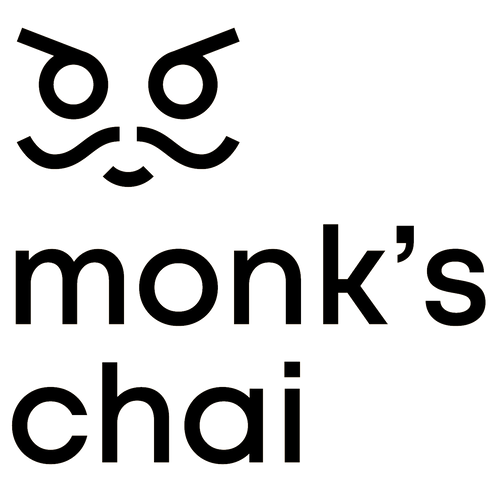Chai-also known as masala chai-is more than a comforting drink; it’s a flavorful blend of black tea, milk, and aromatic spices that has been cherished for centuries. Each ingredient in chai contributes its own unique health benefits, especially for women. From soothing menstrual discomfort to boosting energy and skin health, chai offers both nourishment and indulgence in every sip. As with any beverage, moderation is key-too much sugar, caffeine, or milk can offset its natural benefits.
Why Chai Is Good For Women
Chai’s power lies in its ingredients. Each chai spice and element works together to promote balance and vitality.
- Black Tea: Rich in antioxidants like polyphenols and catechins, black tea supports heart health and helps reduce oxidative stress-one of the main causes of cellular aging.
- Ginger: Known for its warming nature, ginger benefits women’s health by helping relieve menstrual cramps, reduce nausea, and improve digestion. Its anti-inflammatory compounds can also soothe muscle pain and support immunity.
- Cinnamon: This spice helps regulate blood sugar and improves insulin sensitivity, making it beneficial for women managing energy levels or hormonal fluctuations.
-
Cardamom: Often called the “queen of spices,” cardamom aids digestion, freshens breath, and acts as a natural detoxifier, helping the body eliminate waste and toxins effectively.
Top Health Benefits of Chai For Women
Great Source of Antioxidant
Chai made with quality black tea delivers catechins and theaflavins that combat oxidative stress and may play a protective role for cells. Depending on your recipe, your cup can also contribute calcium, manganese, potassium, and vitamin K to support bone health, metabolism, and balanced clotting. In short: protect cells, calm inflammation.
Reducing Menstrual Pain and Cramp
Natural spices in chai, especially ginger and cinnamon are widely studied for easing primary dysmenorrhea. Their anti-inflammatory and antispasmodic actions can help reduce cramping and general period discomfort while offering a comforting ritual you’ll look forward to (1).
Balancing Hormones and Menopause Help
Cinnamon and ginger show promise for supporting insulin sensitivity and metabolic health, which can influence hormone balance in PCOS and beyond (2).
By countering oxidative stress and inflammation, these spices may support healthier lipid profiles, weight management efforts, and overall hormonal resilience.
Help in Pregnancy Stage
Ginger is well-supported for reducing morning sickness and can be a gentle ally in early pregnancy. Opt for decaf or low-caffeine chai to limit stimulant intake (3).
Ginger’s benefits are comparable to vitamin B6 for many people, with a simpler and soother side-effect profile.
Explore more: Is Chai Tea Safe During Pregnancy & Breastfeeding?

Anti-aging Benefits
Antioxidants in tea help neutralize free radicals implicated in premature aging. Spices like ginger and cardamom support collagen-friendly environments and healthy circulation, which can translate to more resilient skin. With regular, balanced intake, chai can be part of a glow-supporting routine.
Healthy Chai Tips For Women
- Limit added sugar: Many café-style chai lattes are loaded with sugar, which can offset chai’s natural benefits. Use minimal sweeteners, or try honey, jaggery, or stevia for a more balanced cup.
- Monitor caffeine intake: While moderate caffeine can improve focus and mood, too much may cause restlessness or affect sleep. Women who are pregnant or sensitive to caffeine should consider decaffeinated or herbal chai options.
- Mind spice sensitivities: Some spices, such as ginger or black pepper, can be strong for those with acid reflux or certain medical conditions. Listen to your body and adjust spice levels as needed.
When To Be Cautious About Your Chai
- Caffeine sensitivity: Too much caffeine can cause dizziness, palpitations, or anxiety. Some notice effects well below 400–500 mg per day, especially if already stressed. Choose smaller cups, decaf blends, or earlier brew times to support restful sleep.
- Lack of iron: Tea polyphenols can reduce iron absorption from meals or supplements. If you’re menstruating or iron-deficient, leave a 1–2 hour gap between chai and iron-rich meals or tablets to protect your levels and energy.
- Digestive issues: Caffeine can increase stomach acid and irritate a sensitive gut, especially on an empty stomach. Pair chai with food or choose a gentler, lower-caffeine brew to keep heartburn and indigestion at bay.
- Blood sugar spikes: Café chai is often heavily sweetened. If you manage insulin sensitivity or diabetes, ask for unsweetened taste before sweetening, and favour spices and milk for flavor to prevent rapid spikes and the crashes that follow.
Where to Buy High-Quality Chai for Your Health
When choosing chai, quality matters. A balanced blend of fresh spices and premium black tea ensures both flavor and function. Opt for handcrafted blends that use whole, natural ingredients and avoid artificial flavorings or excess sweeteners.
If you’re a chai lover, why not enjoy the best chai experience with Monk’s Chai? Their authentic, handcrafted chai blends offer the perfect harmony of taste and tradition, explore their premium range and elevate your chai ritual-one nourishing sip at a time now!

